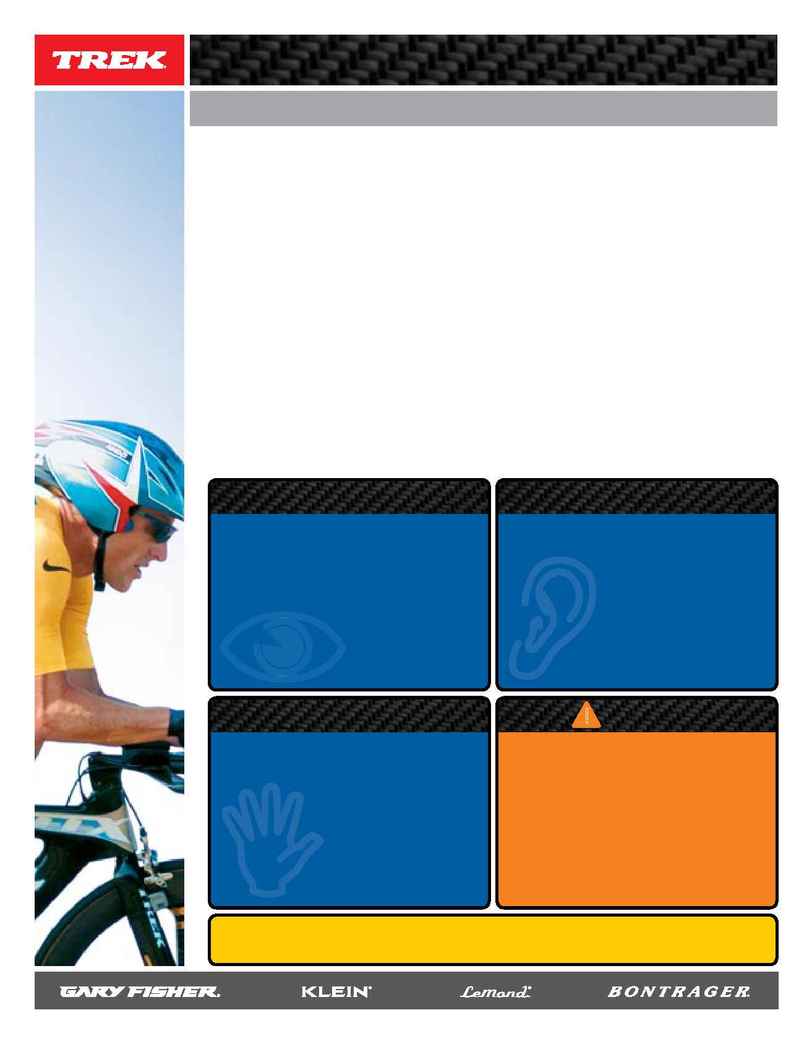
proper carbon fi ber care & maintenance
:
f or k s a nd comp one n t s
:
Trek has been producing OCLV carbon bicycles since 1992. Our products are rigorously tested and proven in
the most brutal race conditions. From the Tour de France to the 24 Hour Mountain Bike World Championships,
our OCLV carbon bikes have been ridden to victory in a variety of racing arenas.
Carbon has proven its performance pedigree. However, carbon fi ber has unique qualities. Unlike metal parts,
carbon fi ber parts that have been damaged usually do not bend, bulge or deform; they break. A damaged
carbon part may appear normal at a quick glance, but could suddenly fail without warning. Carbon forks,
handlebars and stems are most critical.
Trek wants you to be safe. No matter what brand you ride, if you have crashed or impacted your bike (like
when you forgot to take it off your roof rack when you drove into the garage), take your bike to your dealer
for inspection.
Regularly follow the self inspection tips below. If you suspect any of them are true, stop riding your bike
immediately and take it to your local dealer for inspection and evaluation.
THE VISUAL TEST
THE AUDIBLE TEST
Be careful to listen for uncommon noises.
· While riding your bike, carefully listen for any
uncommon sounds. Creaking, cracking or
popping noises could all be indications of a
problem.
THE TACTILE TEST
WARNING
Damaged carbon fi ber can fail suddenly,
causing serious injury or death. Carbon fi ber
can conceal damage from an impact or crash.
If you suspect your bike has been impacted
or crashed, immediately stop riding. Take the
bike to a dealer for inspection.
!
For more information and to learn about Trek's Limited Lifetime Warranty and Crash
Replacement Policy, visit your local dealer or www.trekbikes.com, or call Trek at 1.800.373.4594
Judging your bicycle's ride quality can be
another method for discerning a potential
problem. Things to be aware of include:
· Any degradation in the shifting or braking
performance.
· A change in the bike's ride quality or handling
characteristics.
· While riding your bike, carefully listen for any
uncommon sounds. Creaking, cracking or
popping noises could all be indications of a
uncommon sounds. Creaking, cracking or
popping noises could all be indications of a
problem.
popping noises could all be indications of a
problem.
Frequently inspect your bike frame, fork and
carbon components.
· Look for any gouges or deep scratches, cracks,
loose fi bers or other surface fl aws.
· When cleaning your bike, pay attention to the
cloth getting snagged.
